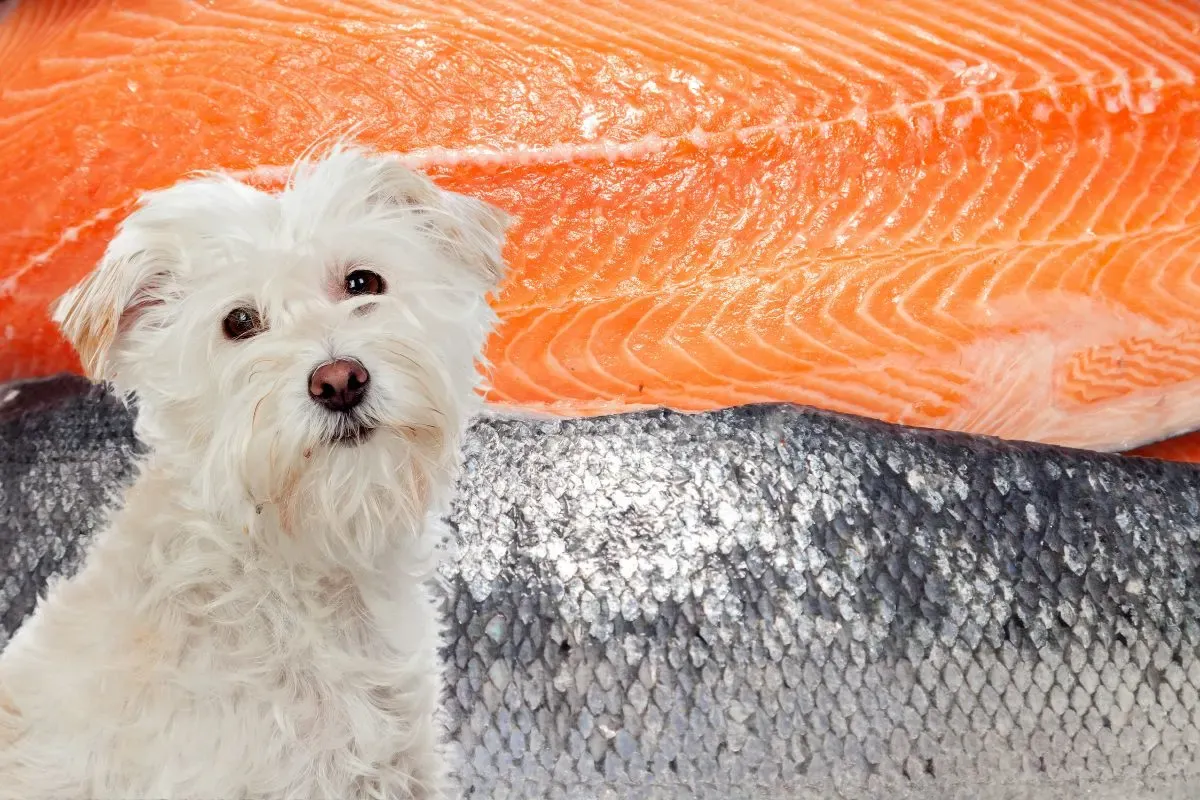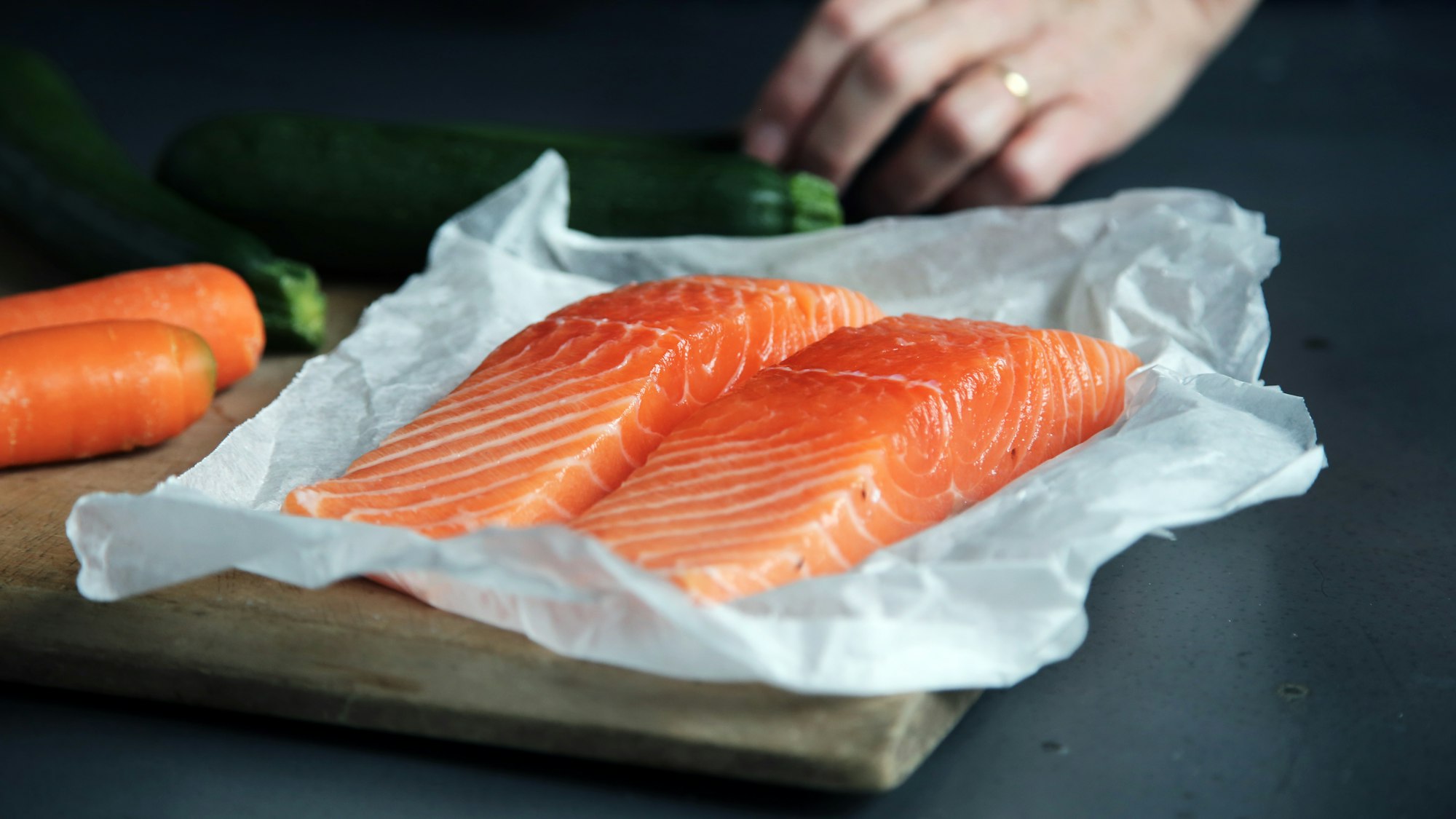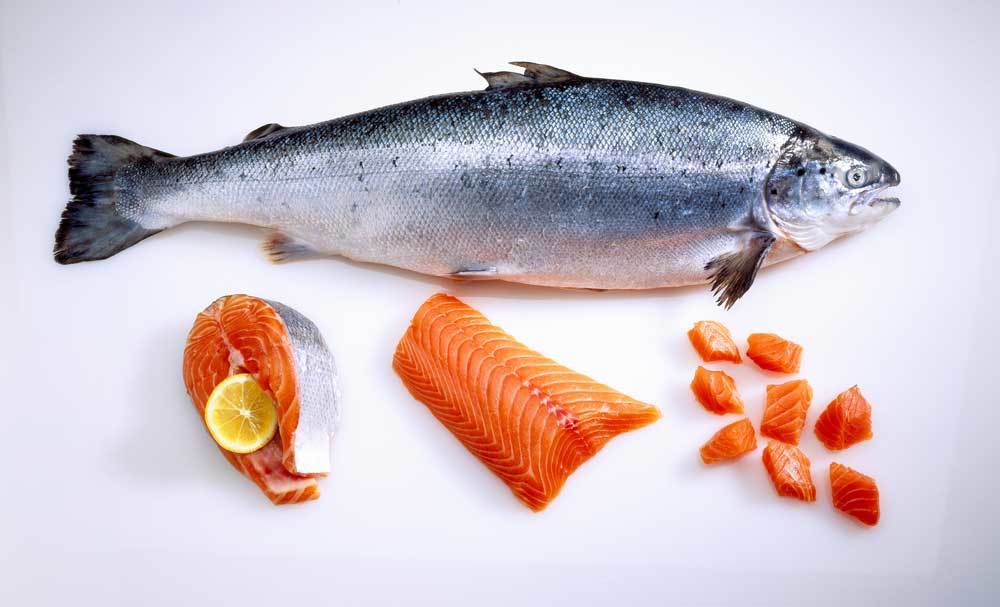Salmon is a delicious and nutritious fish that many humans enjoy, but can your Maltese dog also partake in this tasty treat? In this article, we will explore the question, ""Can Maltese eat salmon?"" and provide you with all the information you need to make an informed decision for your furry friend.

The Nutritional Benefits of Salmon for Dogs
Salmon is known for being a nutrient-rich fish, packed with omega-3 fatty acids, protein, and essential minerals. These nutrients can provide several health benefits for your Maltese dog. Omega-3 fatty acids, in particular, are essential for maintaining a healthy coat and skin, reducing inflammation, and supporting brain health. Protein is also a crucial component of a dog's diet, as it helps build and repair tissues and supports a strong immune system.
Feeding your Maltese dog salmon can be a great way to introduce these essential nutrients into their diet. However, it's important to note that salmon should always be cooked thoroughly before feeding it to your furry companion. Raw or undercooked salmon may contain harmful bacteria or parasites that can cause illness in dogs.

Potential Risks and Considerations
While salmon can be a healthy addition to your Maltese's diet, there are a few risks and considerations to keep in mind. One of the main concerns is the presence of small, sharp bones in salmon. These bones can pose a choking hazard or cause internal injuries if swallowed. Therefore, it's crucial to carefully remove all bones from the salmon before serving it to your Maltese.
Another consideration is the potential for salmon to be contaminated with heavy metals or toxins. This is especially true for wild-caught salmon, which may be exposed to pollutants in the environment. To minimize the risk, it's recommended to opt for high-quality, responsibly sourced salmon and limit the frequency of feeding it to your Maltese.
How to Prepare Salmon for Your Maltese
When preparing salmon for your Maltese, it's important to remove the skin and any visible fat. The skin can be difficult for dogs to digest and may cause gastrointestinal issues. Additionally, excessive fat can lead to pancreatitis, a potentially serious condition in dogs.
To ensure the salmon is fully cooked, it's best to bake or grill it without seasoning or added oils. Seasonings such as garlic, onion, and salt can be toxic to dogs and should be avoided. Once the salmon is cooked, allow it to cool before serving it to your Maltese. It's also a good idea to cut the salmon into small, bite-sized pieces to make it easier for your dog to chew and digest.
Recommended Serving Sizes for Maltese Dogs
When it comes to serving salmon to your Maltese, moderation is key. The recommended serving size will depend on your dog's size, age, and overall health. As a general guideline, you can feed your Maltese about 1 ounce of cooked salmon per 10 pounds of body weight, up to a maximum of 3 ounces per day. However, it's always best to consult with your veterinarian to determine the appropriate serving size for your specific Maltese.
Signs of Allergies or Sensitivities to Salmon in Maltese Dogs
When introducing salmon into your Maltese dog's diet, it's crucial to be vigilant for any signs of allergies or sensitivities. Dogs, like humans, can have varying reactions to certain foods. Here are common indicators that your Maltese might be experiencing an adverse reaction to salmon:
Itching and Scratching: Persistent itching, particularly around the face, paws, or hindquarters, can be a sign of an allergic response.
Digestive Issues: Vomiting, diarrhea, or changes in bowel habits may indicate a sensitivity to salmon or an ingredient in the preparation.
Swelling or Redness: Swelling or redness around the face, eyes, or ears could be a manifestation of an allergic reaction.
Ear Infections: Increased scratching or discomfort around the ears, along with redness or an unpleasant odor, may signal an allergy.
Behavioral Changes: Unexplained changes in behavior, such as lethargy, restlessness, or irritability, can be linked to dietary sensitivities.
Breathing Difficulties: Labored breathing or coughing may occur in severe cases of allergic reactions.
If you observe any of these signs after introducing salmon to your Maltese dog's diet, it's crucial to consult with your veterinarian promptly. Identifying and addressing allergies early can prevent further discomfort and ensure the well-being of your beloved furry friend. Always prioritize your dog's health and well-being when making dietary decisions.
Alternatives to Salmon for Maltese Dogs
If your Maltese is unable to tolerate salmon or you prefer to explore other options, there are several alternatives that can provide similar nutritional benefits. Some fish that are safe for dogs to eat include whitefish, trout, and sardines. These fish are also rich in omega-3 fatty acids and can be a healthy addition to your Maltese's diet.
Additionally, you can consider incorporating other sources of omega-3 fatty acids into your Maltese's diet, such as fish oil supplements or foods fortified with omega-3s. These alternatives can help ensure your Maltese receives the necessary nutrients without the potential risks or considerations associated with feeding salmon.
Tips for Introducing Salmon into Your Maltese's Diet
If you decide to introduce salmon into your Maltese's diet, it's important to do so gradually. Start by offering a small amount of cooked salmon as a treat and monitor your dog for any adverse reactions. If your Maltese tolerates the salmon well, you can gradually increase the amount over time.
Remember to always consider salmon as an occasional treat rather than a staple in your Maltese's diet. A well-balanced and complete dog food that meets all their nutritional needs should be the foundation of their diet. Consult with your veterinarian to ensure your Maltese is receiving the appropriate nutrition for their specific needs.

Real-Life Experiences
Embarking on a journey to incorporate salmon into your Maltese dog's diet often involves learning from the experiences of other pet owners. Real-life stories provide valuable insights into the challenges and successes encountered. Here, we share anecdotes from Maltese owners who have navigated the path of introducing salmon to their furry companions:
- Balancing Act: Jane, a proud Maltese owner, shares her journey of finding the right balance. She highlights the initial challenges of portion control and how gradual introduction helped her Maltese, Max, embrace salmon without any adverse reactions.
- Trial and Error: Mark's experience emphasizes the importance of trial and error. His Maltese, Bella, initially showed signs of sensitivity to certain preparations. By experimenting with cooking methods and portions, Mark eventually found an approach that suited Bella's delicate digestive system.
- Unexpected Benefits: Lisa discovered unexpected benefits when introducing salmon to her Maltese, Charlie. Beyond the anticipated improvement in coat health, Charlie's energy levels and overall vitality increased noticeably. Lisa attributes these positive changes to the nutritional boost from salmon.
- Overcoming Skepticism: David faced skepticism from his veterinarian regarding the inclusion of salmon due to potential allergies. Despite initial reservations, David carefully monitored his Maltese, Daisy, and witnessed a positive transformation in her overall health, proving that a tailored approach is essential.
Expert Opinions
Seeking insights from veterinarians adds a layer of expertise to the discussion around feeding salmon to Maltese dogs. Here, we present opinions from veterinary professionals who offer balanced perspectives on the matter:
- Dr. Smith's Insights: Dr. Emily Smith, a renowned veterinarian, emphasizes the nutritional benefits of salmon. She advises pet owners to focus on proper preparation and moderation, considering the unique needs of Maltese dogs.
- Balancing Act: Dr. James Brown stresses the importance of a balanced diet for Maltese dogs. While salmon can be a valuable protein source, he recommends diversifying the diet to ensure all nutritional requirements are met.
- Cautionary Advice: Dr. Sarah Adams provides cautionary advice, particularly for Maltese dogs prone to allergies. She suggests thorough observation and consultation with a vet before incorporating salmon, considering individual sensitivities.
- Tailored Approaches: Dr. Jennifer Lee advocates for tailored approaches based on individual health conditions. She acknowledges that while some Maltese dogs thrive on salmon, others may require alternative protein sources.
By combining real-life experiences with expert opinions, Maltese owners can make informed decisions about introducing salmon to their dog's diet. It's essential to strike a balance, considering both personal anecdotes and professional advice to ensure the best possible care for your furry friend.
Facts about Maltese Dogs and Salmon
When it comes to the relationship between Maltese dogs and salmon, understanding key facts is essential for responsible pet ownership. Here are some important points to consider:

- Unique Dietary Needs: Maltese dogs have unique dietary needs influenced by their small size and sensitive digestive systems. It's crucial to tailor their diet to meet these specific requirements.
- Nutritional Benefits of Salmon: Salmon is a rich source of omega-3 fatty acids, which promote healthy skin, coat, and overall well-being. These nutrients can contribute to the vitality of Maltese dogs.
- Moderation is Key: While salmon offers nutritional benefits, moderation is key. Avoid overfeeding and ensure a well-balanced diet by incorporating a variety of protein sources to meet the Maltese dog's overall nutritional needs.
- Potential Allergies and Sensitivities: Maltese dogs, like any breed, can be prone to allergies and sensitivities. Introducing salmon should be done gradually, and owners should monitor for any signs of allergic reactions or sensitivities.
- Preparation Matters: How salmon is prepared is crucial. Boneless, well-cooked salmon without added seasonings or additives is the safest choice for Maltese dogs. Be cautious with raw or improperly cooked salmon, which may pose risks.
- Consultation with Veterinarian: Before making significant changes to a Maltese dog's diet, it's essential to consult with a veterinarian. A professional can provide personalized advice based on the dog's individual health, age, and dietary needs.
- Variety in Diet: While salmon can be a valuable addition to a Maltese dog's diet, variety is key. Including other protein sources and nutrients ensures a well-rounded and balanced nutritional profile.
- Observation for Allergic Reactions: Maltese owners should closely observe their dogs for any signs of allergic reactions, including itching, digestive issues, or behavioral changes. Prompt veterinary attention is necessary if any adverse reactions occur.
- Alternative Protein Sources: If salmon proves unsuitable for a particular Maltese dog, there are alternative protein sources available. Consultation with a vet can help identify suitable options to meet the dog's nutritional requirements.
- Individual Differences: Each Maltese dog is unique, and individual differences should be considered. What works well for one may not be suitable for another, emphasizing the importance of personalized care.
By understanding these facts, Maltese owners can make informed decisions about incorporating salmon into their dog's diet, ensuring a healthy and balanced nutritional regimen tailored to the specific needs of these charming small breeds.
Conclusion: The Verdict on Feeding Salmon to Maltese Dogs
In conclusion, salmon can be a healthy and nutritious addition to your Maltese's diet when prepared and served properly. It provides essential nutrients such as omega-3 fatty acids and protein, which can benefit your dog's overall health. However, it's important to consider the potential risks, such as bones and contaminants, and feed salmon in moderation.

If your Maltese is unable to tolerate salmon or you prefer to explore other options, there are alternative fish and omega-3 sources available. Always consult with your veterinarian to ensure you are providing a well-balanced and appropriate diet for your furry friend.
By making informed decisions about your Maltese's diet, you can help keep them happy, healthy, and satisfied. So, if you're considering feeding your Maltese salmon, go ahead and let them enjoy a delicious and nutritious treat, but remember to do so in moderation and with caution.
Frequently Asked Questions (FAQs)
- Q: Can I feed my Maltese raw salmon?
- A: It's not recommended to feed your Maltese raw salmon due to the risk of bacterial contamination. Cooking salmon thoroughly will help eliminate any harmful bacteria and ensure it's safe for your dog to consume.
- Q: Can I feed my Maltese salmon every day?
- A: It's best to feed salmon to your Maltese as an occasional treat rather than a daily occurrence. Moderation is key to avoid any potential risks or imbalances in their diet.
- Q: Can I feed my Maltese canned salmon?
- A: Canned salmon can be an option for your Maltese, but you should look for varieties that are low in sodium and free from added seasonings or oils. Always check the label and consult with your veterinarian before feeding canned salmon to your dog.
- Q: Are there any specific health benefits of feeding salmon to Maltese dogs?
- A: Salmon is rich in omega-3 fatty acids, promoting healthy skin, coat, and overall well-being. However, consult your vet for personalized advice.
- Q: What are the signs of salmon allergies in dogs?
- A: Allergic reactions can include itching, vomiting, diarrhea, or changes in behavior. Seek veterinary assistance if you observe these symptoms.




